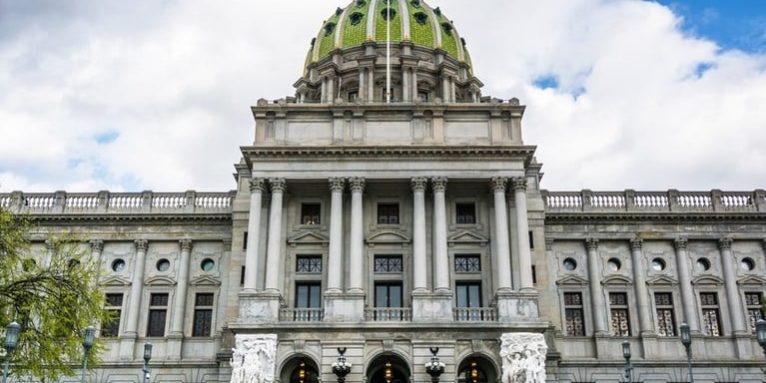In 2023, over 330,000 Pennsylvanian households had their gas, electric, or water shut off because they could not afford to pay – and nearly 25% of Pennsylvanians reported foregoing food, medicine, and other basic needs to keep up with utility costs.[1]
Chapter 14 of the Public Utility Code creates unreasonable challenges for low and moderate income households to maintain basic utility services. The billing, collections, and termination rules in Chapter 14 sunset at the end of 2024. The General Assembly must take this opportunity to reform these rules and keep Pennsylvanians connected!
- Low-income Pennsylvanians often pay as much as 30% of household income on energy costs alone.[2] Median income Pennsylvanians pay just 4%. The Public Utility Commission (PUC) has concluded that, to be affordable, energy costs should be not exceed 10% of household income.[3]
- Punitive and excessive late fees, reconnection fees, and security deposits authorized by Chapter 14 add to energy and water insecurity, compounding payment trouble, increasing uncollectible expenses, and making it more difficult for households to stay connected.
- Many moderate-income customers are deprived of utility service due to Chapter 14’s strict limits on affordable payment arrangements, which do not account for real-life circumstances.
- Customer Assistance Programs (CAPs) are a critical affordability tool. However, statewide, these programs are dramatically undersubscribed due to barriers to access. Less than 25% of estimated income-eligible customers are enrolled in CAP.[4] Currently, Chapter 14 does not adequately ensure that eligible customers are enrolled in the right rates to prevent accrual of unaffordable debts.[5]
- Terminating service to households that cannot afford to pay does not improve collections – it leads to high rates of bankruptcy, eviction, and foreclosure.
There are two bills pending in the PA legislature that reauthorize and amend Chapter 14:
House Bill 1077 includes holistic prevention-based reforms to ensure households can stay connected and afford life-essential utility services, while ensuring consistency and equity across the state in the treatment of utility customers.
Senate Bill 1017 maintains the punitive status quo and introduces provisions which could jeopardize housing stability and make it more difficult for vulnerable households to maintain service.
Please tell your Pennsylvania House Representative and Senator that you support HB 1077 over SB 1017
Please contact Joline Price for more information.
| HB 1077 | SB 1017 |
|---|---|
|
|
[1] US Census Pulse Survey, Energy Insecurity; PA PUC Termination Data, Year over Year 2022 to 2023 (on file with CLS and PULP).
[2] Fisher, Sheehan, & Colton, The Home Energy Affordability Gap: 2022 (April 2023), http://www.homeenergyaffordabilitygap.com/03a_affordabilityData.html.
[3] PA PUC, Home Energy Affordability for Low-Income Customers (Jan. 2019) at 87, https://www.puc.pa.gov/pcdocs/1602386.pdf; 52 Pa. Code 69.265.
[4] Id. at 9, 59. Note that the estimated low income CAP enrollment rate is more accurate than the confirmed low income CAP enrollment rate utilized by the industry. Confirmed low income customer counts only include customers that have recently verified their income with a utility. Confirmed low income participation rates should be nearly 100%, as these are folks known to the utility to be income eligible for rate assistance programs.
[5] 66 Pa. C.S. 1410.1.






